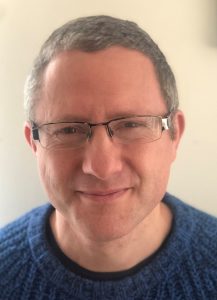 Ben Hoban is a GP in Exeter
Ben Hoban is a GP in Exeter
One of the biggest changes in UK general practice over the last twenty years has been the entry of other primary care professionals into what used to be exclusively a doctor-and-nurse shop. These new colleagues are now regularly involved with, and sometimes lead the management of, acute illness, long-term conditions, antenatal care and musculoskeletal and mental health problems. They consult, examine, prescribe, visit, write fit notes, review medication, arrange radiological investigations and refer to secondary care, while receptionists help patients to navigate this new landscape and practice managers oversee it. Integrated IT systems mean that we are no longer the only ones with access to a patient’s medical past, and clever software can spot patterns of disease and keep up to date on current guidance better than we can. The only thing we do uniquely as GPs is to issue death certificates, although the new Medical Examiners may decide at some point that this is more within their remit. If no element of our portfolio is ours alone, are we still needed, or are we on the path of the dinosaurs, great in their age but now preserved only in museums?
We have a foot in both the medical and the everyday worlds, enabling us to bridge the gap between them.
The lack of a proprietary function is perhaps debatable, however. Although one competent clinician can manage this or that disease as well as another, what of the patients whose difficulties defy diagnosis: are they destined to orbit forever the outpatient department of the local hospital, passing from one baffled specialist to another? And what of those with multiple problems, sprawling across social and emotional domains as well as the merely medical? Ought they to be looked after by an army of professionals or by one sympathetic generalist?
Medical training and practice are based on the biomedical model, which conceives of people fundamentally as wet machines whose malfunction generates an error code of symptoms and signs that a suitably qualified practitioner can interpret with a view to fixing the problem. Experience and professional disappointment tell us that things are often a good deal more complicated than this model allows, and yet we still have an obligation to care for our patients. It is our privilege as GPs to see the person behind the illness, whether they have one diagnosis, a dozen or none at all. Indeed, if we have a ‘Unique selling point’ (USP) as doctors, it may simply be that we are able and willing to work outside the biomedical model when the situation demands it. It’s not that we are more advanced as clinicians, but that inasmuch as our role depends on a healthy ongoing relationship with patients, we are obliged to consider their perspective as well as our own. We have a foot in both the medical and the everyday worlds, enabling us to bridge the gap between them.
…opening the doors to other practitioners needn’t signal the weakening of our brand or the onset of professional oblivion.
GPs are not good at relational care or managing complexity and uncertainty because of any inherent aptitude for these things, but because our role places us into an environment in which they are unavoidable. A paramedic or pharmacist could in principle do the same, but may less often have the opportunity, or indeed the expectation of doing so. In some ways, then, the question is not so much whether we still need GPs, but whether we still want the kind of healthcare that emerges from within the current structure of general practice, regardless of who provides it. If we do, then opening the doors to other practitioners needn’t signal the weakening of our brand or the onset of professional oblivion. Instead, we will have the chance to share with new colleagues a distinctive way of approaching healthcare that patients still seem to appreciate.






